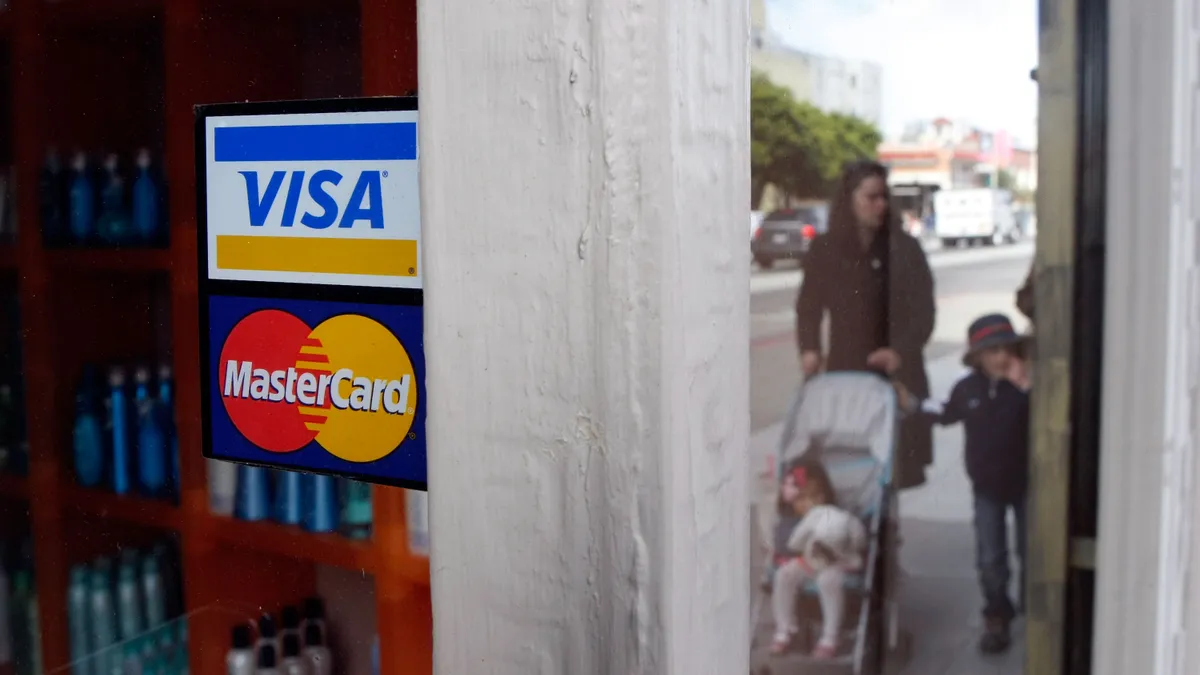Legislation aimed at bringing more competition to the U.S. credit card industry was introduced this week by Democratic Sen. Dick Durbin and Republican Sen. Roger Marshall, who locked arms to challenge Visa and Mastercard’s dominance of the card network industry.
The legislation, if passed, would build on earlier efforts by Durbin (D-IL) to inject more competition into the industry and dislodge a duopoly that has worked hand-in-glove with bank card issuers to increase interchange ‘swipe’ fees for merchants and retailers.
The bill would generally mandate that merchants have access to card networks other than Visa and Mastercard for routing credit card transactions. Durbin successfully won passage of an amendment to the 2010 Dodd-Frank Wall Street Reform and Consumer Protection Act that imposed a similar requirement on debit transactions.
“This legislation, which builds upon pro-competition reforms Congress enacted in 2010, would give small businesses a meaningful choice when it comes to card networks, and it would enable innovators to gain a foothold in credit cards,” Durbin said in a press release issued by the senators on Thursday. “Bringing real competition to credit card networks will help reduce swipe fees and hold down costs for Main Street merchants and their customers.”
Details of the new legislation emerged Thursday after hints of it circulated in the industry for months.
The senators noted in their release that Visa and Mastercard back about 83% of general-purpose credit cards in the U.S., with transactions in the country last year amounting to $3.49 trillion in payments. Fees imposed on merchants for those transactions amounted to $77.48 billion last year, including a slice that flows to Visa and Mastercard along with those that benefit the bank issuers, the release said.
Earlier this year, Durbin denounced fee increases put through by the card networks and bank card issuers and called for reforms at a Senate Judiciary Committee hearing on the topic in May. Now, the senators are calling on increased competition to help lower the fees.
“When it comes to Main Street vs Wall Street, I’ll choose Main Street every time,” Marshall said in the release. “Convenience stores, gas stations and other small businesses in Kansas are being taken advantage of by Visa and Mastercard on behalf of big banks in New York City at a time when they, and the communities they serve, are grappling with crippling inflation and staring down the barrel of a looming recession.”
The bill is already touching off a continuation of the battle that has long pitted retailers and merchants on one side against the card networks and the bank issuers on the other. While supporters of the bill, such as the Merchant Payments Coalition, said it’s likely to attract bi-partisan support, given its reliance on competition to address high fees, long-time detractors of such moves, including the Electronic Payments Coalition, have already expressed concerns about the bill and appear unlikely to back it.











